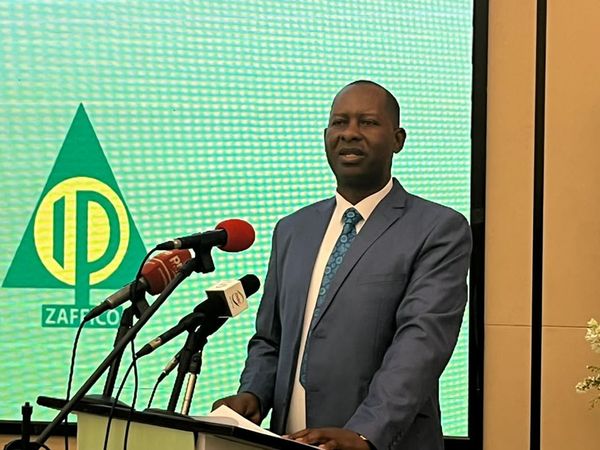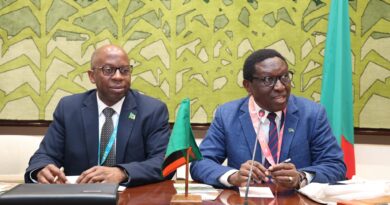Zambia Tackles Environmental Challenges with Focus on Education for Sustainable Development
Zambia’s Minister of Green Economy and Environment, Hon. Mike Mposha, announced that the country is making significant strides in addressing immediate environmental challenges and establishing itself as a leader in sustainable development.
Speaking at the official opening of the Environmental Education Association of Southern Africa Conference, Hon. Mposha emphasized the importance of integrating education into strategies for transitioning to equitable, just, and sustainable economies.
The conference, themed “Education for Sustainable Development (ESD): Transitioning into Equitable, Just, and Sustainable Economies,” resonates with the urgent environmental and socio-economic issues facing the southern African region. Hon. Mposha highlighted the region’s rich biodiversity and natural resources while also pointing out the vulnerability to environmental degradation, climate change, and associated impacts such as drought, deforestation, and biodiversity loss.
“Our region is experiencing increased droughts, unpredictable rainfall, and significant environmental degradation,” Hon. Mposha said. “These challenges exacerbate poverty, food insecurity, and water scarcity, creating a critical situation that demands urgent, coordinated action.”
He underscored that addressing environmental challenges is crucial for socio-economic development and that education plays a pivotal role in this effort. He noted that global frameworks, including the Rio Earth Summit, the UNFCCC, and the Paris Agreement, have long recognized education’s essential role in combating climate change.
“Education equips individuals with the skills and knowledge needed to tackle climate change and drive sustainable development,” he said. “It is a central element in our efforts to mitigate and adapt to the impacts of climate change.”
Zambia’s commitment to environmental sustainability is evident through the Eighth National Development Plan (8NDP), which includes a new pillar dedicated to environmental considerations. This pillar aims to integrate environmental issues into the national development agenda, reinforcing the government’s dedication to sustainable development.
Hon. Mposha also emphasized the alignment of the conference’s theme with the Ministry’s mission, noting that Education for Sustainable Development (ESD) is vital for raising awareness, building capacity, and empowering communities. “ESD fosters the knowledge, skills, attitudes, and values necessary to address environmental challenges and drive the transition to a green economy,” he stated.



